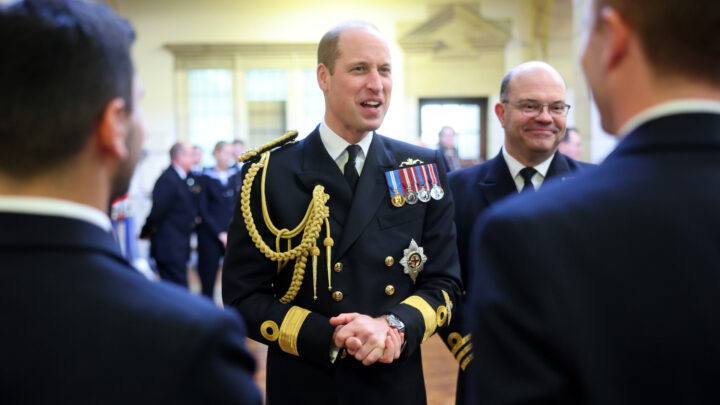The British royal family has entered another period of public attention as concerns continue to surround King Charles III’s health. Reports indicate that Prince William, the Prince of Wales, has faced immense emotional pressure while supporting his father during this time. Although online speculation has circulated widely, it’s important to separate verified facts from unsubstantiated claims.
King Charles’s Health: Official Updates
In February 2024, Buckingham Palace released an official statement confirming that King Charles III had been diagnosed with a form of cancer. The Palace clarified that this diagnosis followed treatment for a benign enlarged prostate, during which an unrelated issue was identified. The exact type of cancer has not been disclosed, in line with the King’s wishes for privacy.
Since then, the monarch has temporarily scaled back public engagements while continuing to receive regular treatment. The Palace has emphasized that His Majesty remains fully engaged in his constitutional duties, receiving official papers daily and maintaining regular meetings with the Prime Minister and senior officials.
Prince William’s Role During the King’s Treatment
As the heir apparent, Prince William has taken on a greater share of royal duties over the past year. He has represented the Crown at public events, led investiture ceremonies, and supported charitable initiatives through the Royal Foundation.
Observers have noted that William’s responsibilities have increased significantly as his father undergoes treatment. According to BBC and The Guardian, he has focused on maintaining a sense of continuity and stability for the monarchy, especially during major state events.
This increased workload comes during a personally demanding time for the Prince, as he balances his royal duties with supporting his wife, Catherine, Princess of Wales, who has also been undergoing preventive cancer treatment announced in early 2024. Kensington Palace previously confirmed that she is focusing on her recovery and has temporarily stepped back from public appearances.

Public Concern and Support
Public reaction to the King’s health updates has been characterized by widespread empathy and support. Messages wishing the monarch a speedy recovery have flooded social media platforms, and many citizens have expressed appreciation for his continued service despite health challenges.
Polls conducted by reputable UK media outlets indicate that a majority of Britons support both the King and Prince William during this transitional period. Many have also praised Queen Camilla for her visible support role at public events and her efforts to maintain the royal family’s presence.
Prince William’s Emotional Connection to His Father
While no official statement has described specific emotional incidents, it is widely known that Prince William has a close relationship with King Charles. In past interviews, he has spoken about his father’s commitment to public service and his role as a guiding influence.
During previous public appearances, William has expressed gratitude for the public’s support of both his father and his wife. His words often highlight the deep sense of duty and family loyalty that characterizes his approach to the future role of king.

Looking Ahead: The Royal Family’s Future
As treatment continues, King Charles III remains the reigning monarch. There has been no official indication of abdication or constitutional transition. However, the Prince of Wales’s increased visibility has naturally led to discussions about the monarchy’s future.
Royal experts note that William has shown interest in modernizing certain aspects of royal operations, such as streamlining engagements and focusing on issues like mental health, climate change, and early childhood development. These areas are expected to remain priorities if and when he eventually assumes the throne.
In the meantime, the royal family is expected to continue with adjusted public schedules to accommodate the King’s treatment. Senior royals—including Princess Anne, Queen Camilla, and Prince Edward—have taken on additional duties to support the Crown.

Conclusion
Concerns about King Charles III’s health have understandably led to heightened public interest in the royal family’s activities. While speculation can spread quickly, the most responsible and accurate picture comes from official palace communications and credible media outlets.
Prince William continues to play a crucial role during this period, balancing increased responsibilities with personal commitments. The royal family’s resilience, combined with public support, underscores their enduring presence at the center of British national life.
As the King undergoes treatment and the Prince of Wales supports him, the nation watches with hope for a positive outcome and a stable future for the monarchy.
